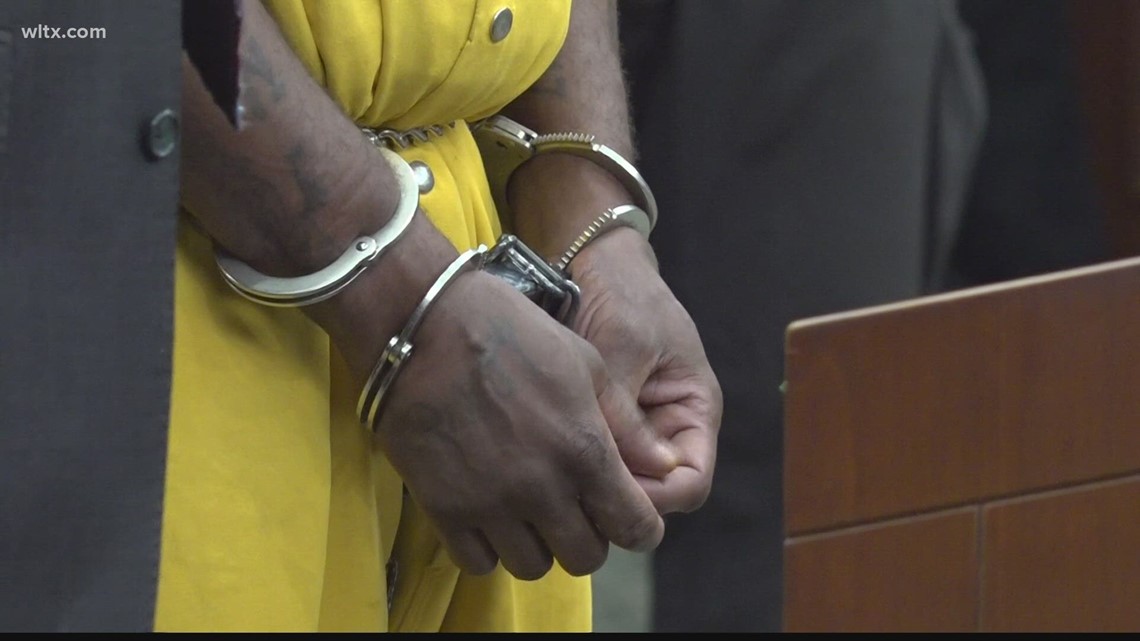
The prosecution said the 2018 riot started over a rivalry between members of three different gangs at Lee Correctional Institution. Seven inmates were killed.
SUMTER, S.C. — Three years after what officials have called the worst US prison riot in 25 years, inmates are pleading guilty to their role.
In April 2018, seven inmates were killed, and 22 were injured at Lee Correctional Institution, a maximum security prison in Bishopville.
Prosecutors say the deaths came during fights that broke out between rival gangs.
Rahim Carter, Tyrone Lewis, Arsenio ColClaugh and Mike Smalls all pleaded guilty to various crimes, including possession of contraband and mob conspiracy.
“This is important because folks who know that they’re going to be held accountable for their actions regardless of where they are in the system. If they had 1,000 years, they’re going to still be held accountable for their actions,” South Carolina Department of Corrections (SCDC) Director Bryan Stirling said. “I think it’s important for the victims in this case, people that are left behind to see that justice has been served for their loved ones.”
All four men received 973 days of credit to their sentence after they were indicted in November 2018. Judge Ferrell Cothran accepted that credit and sentenced the men, adding different lengths to the sentences they’re currently serving.
“It’s great to start; it’s great to get this thing rolling,” Special Prosecutor Barney Giese said. “I really think it will go pretty quickly now.”
Stirling said he called Giese and the Attorney General’s Office for help prosecuting the cases.
“We knew that this circuit, it’s a small circuit, didn’t have resources to handle this,” Stirling said.
Giese said there are 42 other inmates that his team is working to prosecute, trying to get through as many as they can before a tentative Aug. 14 trial date for the murders.
“It’s going to be a process,” Giese said. “We just want to make sure that justice is done. Sometimes, sometimes it takes three months, 10 months, it takes almost 5 to 10 years. That’s what we’re aiming for. We’re not gonna rush it, but we’re going to do it.”
It’s taken five years of work, but Giese hopes the process will start quickly. In that same period, Stirling said several measures had been taken at facilities across the state to improve security, including raising pay for corrections officers.
“We’re getting more money. I believe when this started, we were around $35,000 with pay around 2018. Now we’re almost $53, 52,000,” Stirling said of the yearly salary. “We have about 300 more officers this time this year than we did last year; there’s 300 more going into the academy, so there’s more staff, paying more over time. It’s been a Herculean effort by a lot of people to make sure that we and all our prisons are safer.”
This effort includes changing the classification system to include “their crime, their health, their mental health, prior history and things of that nature” and decreasing the number of inmates at the facility overall.
“The numbers are way down at Lee. It’s more manageable. The [maximum security] folks are single cell, so it’s safer for staff, it’s safer for everybody. That’s not just at Lee, but that’s across the state,” he said.
Stirling said other improvements have been made, like fixing the locks on doors, adding more surveillance and trying to crack down on illegal cell phone usage by inmates, which Giese said likely led to the riot getting out of control.
“That really played a huge part in this. I say it played a huge part: it kept it from being isolated,” Giese said.
Prosecutors said the riot at Lee escalated when inmates from three units, F1, F3 and F5, allegedly communicated about what was happening. Instead of isolating the riot to one unit, Giese said this rapid communication between inmates escalated the situation quickly.
According to SCDC, authorities said the inmates “joined in the melee” after they learned of “growing violence in adjacent housing units through the use of contraband cellphones.”
“The SLED SWAT Team worked with SCDC’s Emergency Response Teams to secure a dangerous situation, preventing further loss of life. A subsequent joint investigation by SLED and SCDC made sure those responsible were brought to justice,” SLED Chief Mark Keel said in a statement. “SLED is committed to assisting state partners like SCDC, with the hope that one day what happened at Lee Correctional five years ago can be prevented in the future.”
Thursday’s pleas include:
- Mike Smalls, 28, pleaded guilty to second-degree assault and battery by mob and conspiracy. He was sentenced to 18 years on the mob charge and five years for conspiracy. These charges are concurrent. Smalls received three years credit for time served.
- Rahim F. Carter, 40, pleaded guilty to possession of contraband. He was sentenced to five years and received three years credit for time served.
- Tyrone Lewis Jr., 34, pleaded guilty to possession of contraband. He was sentenced to three years and received three years credit for time served.
- Arsenio Donta C. Colclough, 36, pleaded guilty to possession of contraband. He was sentenced to three years credit for time served. Colclough is currently housed in the Sumter-Lee Detention Center on unrelated charges.
All of the inmates in Thursday’s pleas are still incarcerated. Their new sentences will be incorporated into their existing ones. The contraband referred to in the charges involves weapons.
This post was originally published on this site be sure to check out more of their content.








